BLOG
Find support not just for emotional eating, but all aspects of your well-being.
Supporting Your Mental Health at Work
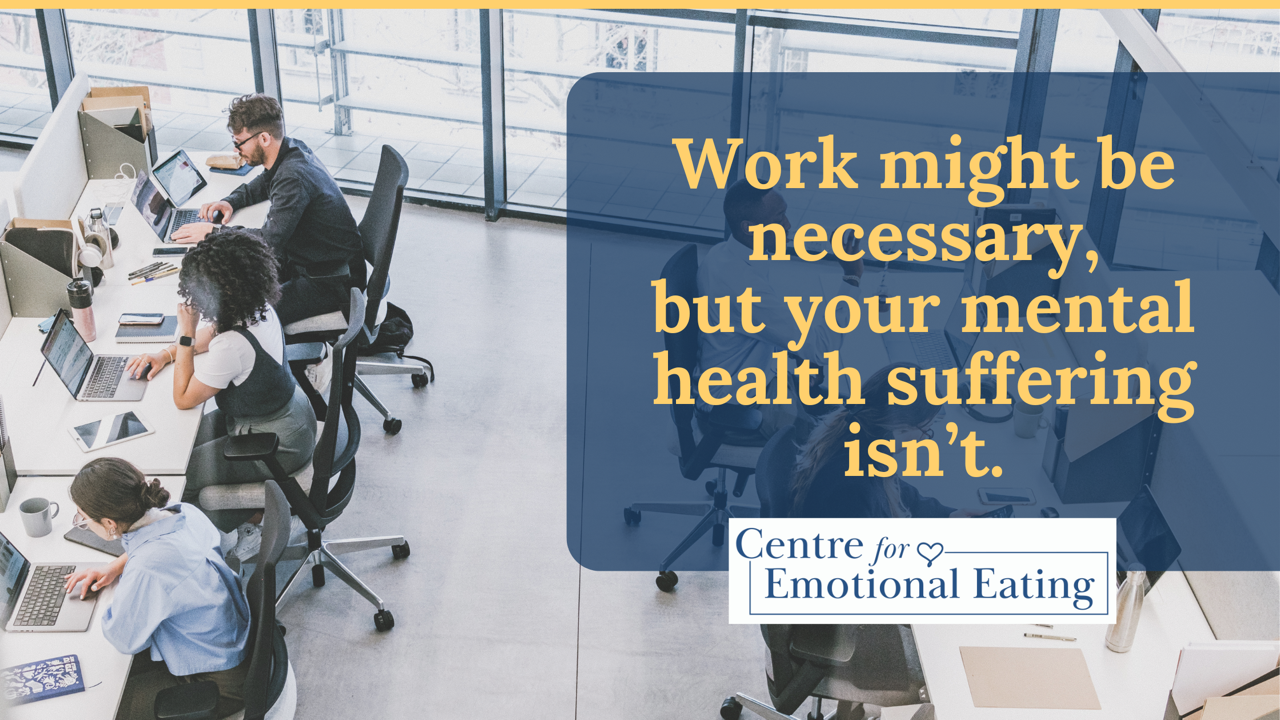
No matter what you do for work, chances are it is a stressor in your life. Even if you enjoy your job, there might be tasks or colleagues you’d rather not deal with. Work is a necessity not just for income, but also purpose, goal setting, community, and future planning.
That doesn’t mean it isn’t stressful.
Below are a number of ways you can support your mental health as a worker.
Basic Maintenance Goes a Long Way
You might already know that routines, rituals, and structure can support your well-being, so focusing on identifying working hours (and rest or play hours), practicing good sleep hygiene, and implementing boundaries around your work phone or logging in can be incredibly helpful for supporting your mental health. It can also be helpful to create a transition ritual where you let your nervous system know that you are changing from work you to home you. Listen to a meditation app on your commute or change clothes as soon as you are home. These can signal to your body that it...
How to Set Personal Boundaries
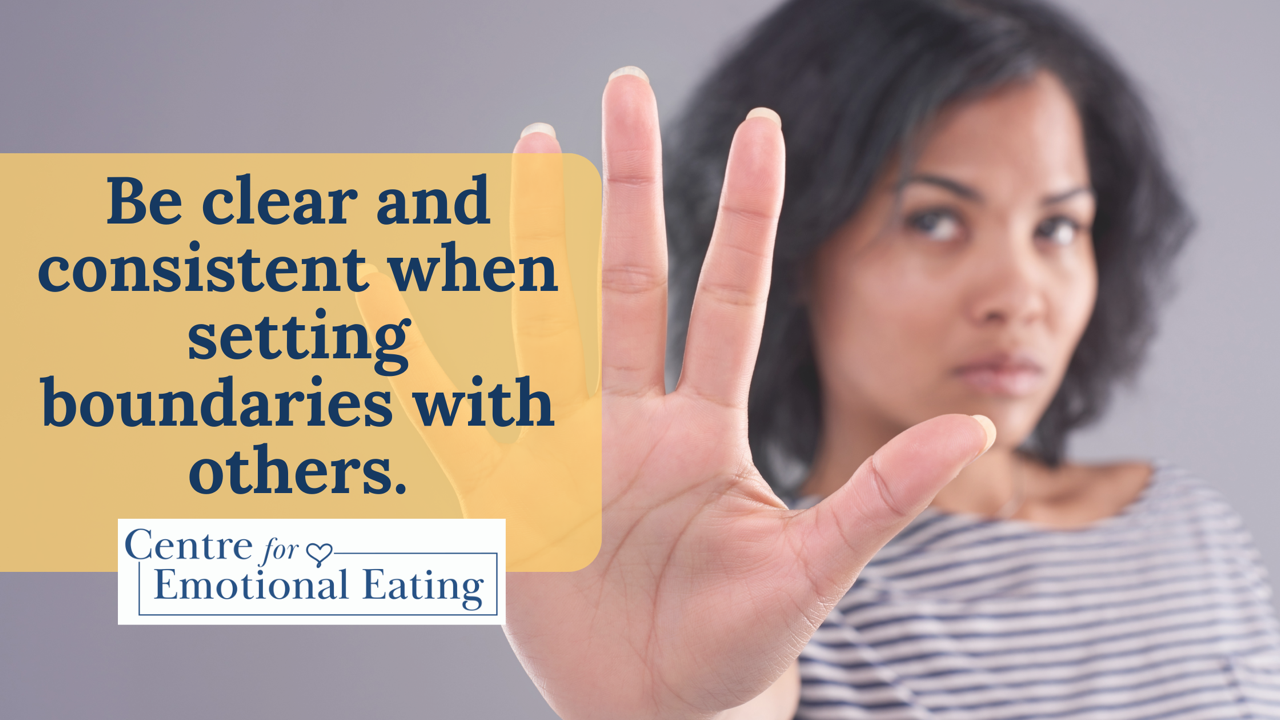
Setting boundaries with other people can feel very challenging. It pushes against our desire to keep the peace, challenge those we love, out of fear of rejection. But they are an essential part of maintaining your well-being and healthy relationships.
Benefits of Boundaries
Your boundaries are personal to you—they’re the guidelines you set to protect your body, mind, energy, and lifestyle. That’s a pretty powerful thing. For example, setting boundaries with others can include how frequently or quickly you respond to calls and texts, saying “no” when you don’t have time or interest in something, or pushing back on critical comments.
While you might feel uncomfortable to set boundaries, doing so can support your mental health, financial stability, help you feel more confident, and even create healthier relationships. Often others will respect you for knowing what you are and aren’t comfortable with, and stick with it.
While you may need to communicate your boundaries to others, you d...
Create A Routine That Brings You Peace
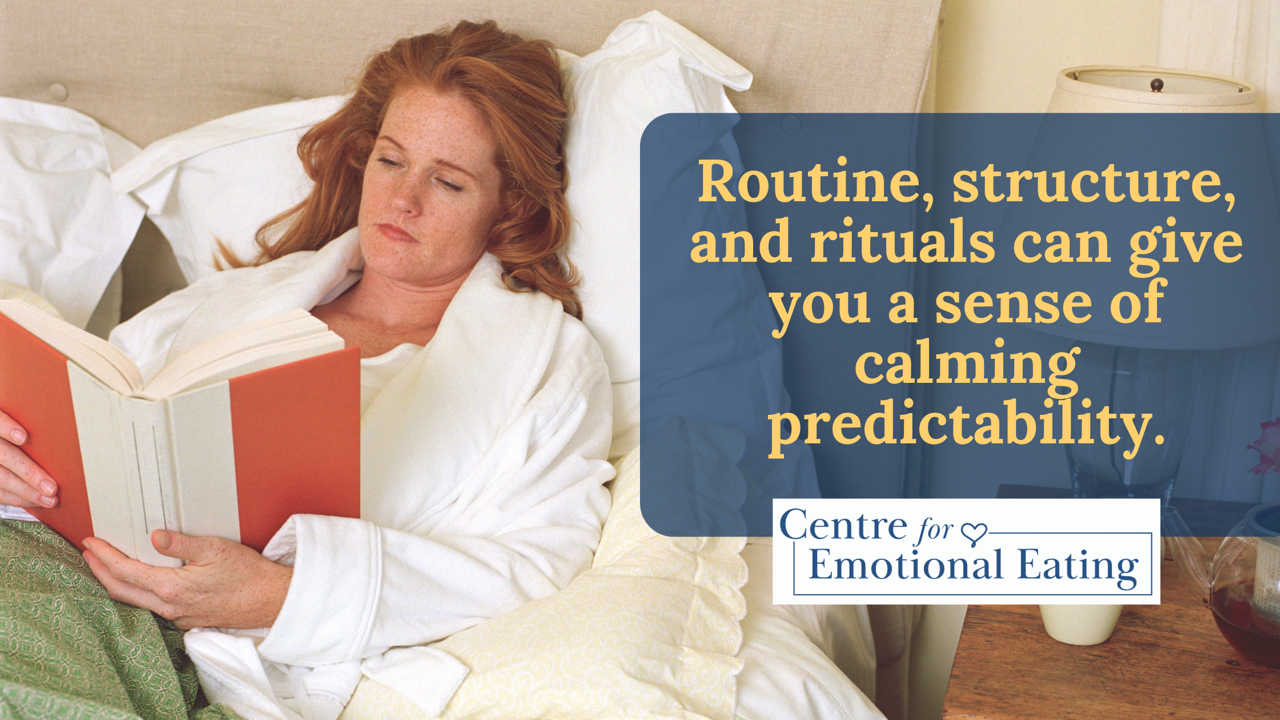
Routines don’t have to be boring! One of the best ways to create certainty and predictability in your life is to have routines, structure, and rituals. These can be big or little things: taking the same route to work or buying the same shampoo so you’ll know how it will smell. It can be having Taco Tuesday’s or reading 30 minutes before you turn the light off for sleep.
Here are three key ways routines can support you:
Helps support your sleep. This is probably one you’ve heard of, but a good routine or ritual before bed can help you get a better night’s sleep because it keeps your body on the same wake-and-sleep ‘clock’. Try lowering the lights (even lighting a candle), putting your phone on silent, or watching your favourite comfort show.
Creates a sense of safety and reduces stress. The predictability of knowing what comes next is a great way to calm your nervous system. Consider the times you worry or are anxious about a situation, chances are you can’t predict how it will turn ...
Five Effective Ways to Ground Yourself
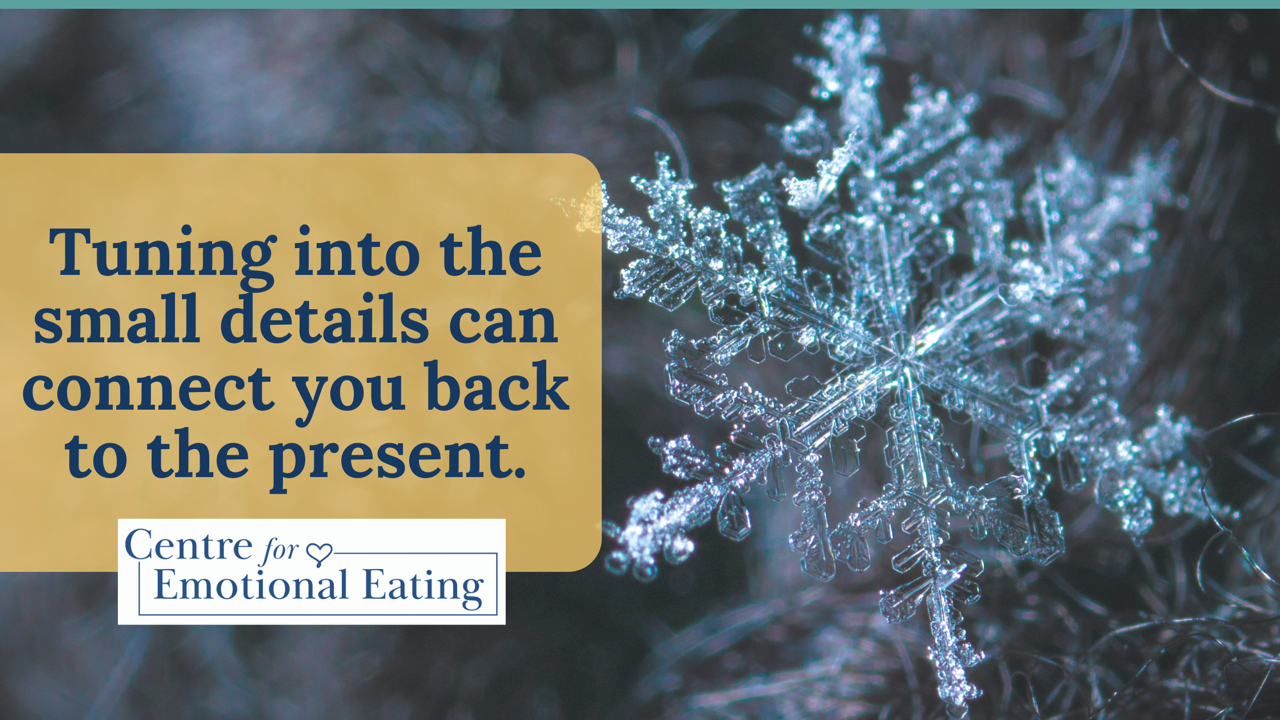
There are many benefits to being able to bring a sense of grounding into your day-to-day life! You don’t have to be someone who has high levels of anxiety (although the strategies below can be helpful), grounding can also make you feel more present, grateful, and connected.
Emotional eaters use food as a way to escape their body, to avoid experiencing certain feelings, either as distraction or numbing. Learning how to ground yourself can help lessen the intensity of these emotions that lead you to use food to cope and even help you emotionally eat less frequently. Try one or all of the strategies below and see what works for you!
Deep breathing. This can be as simple as taking slower, deeper breaths at your own pace or finding a patterned technique that works for you. This is such a great strategy that you can use in a meeting at work, around the dinner table, or just before bed.
Be in nature. Take off your shoes and feel the earth beneath your feet, turn your face to the warm rays ...
Reparenting: Learning to Support the Younger You
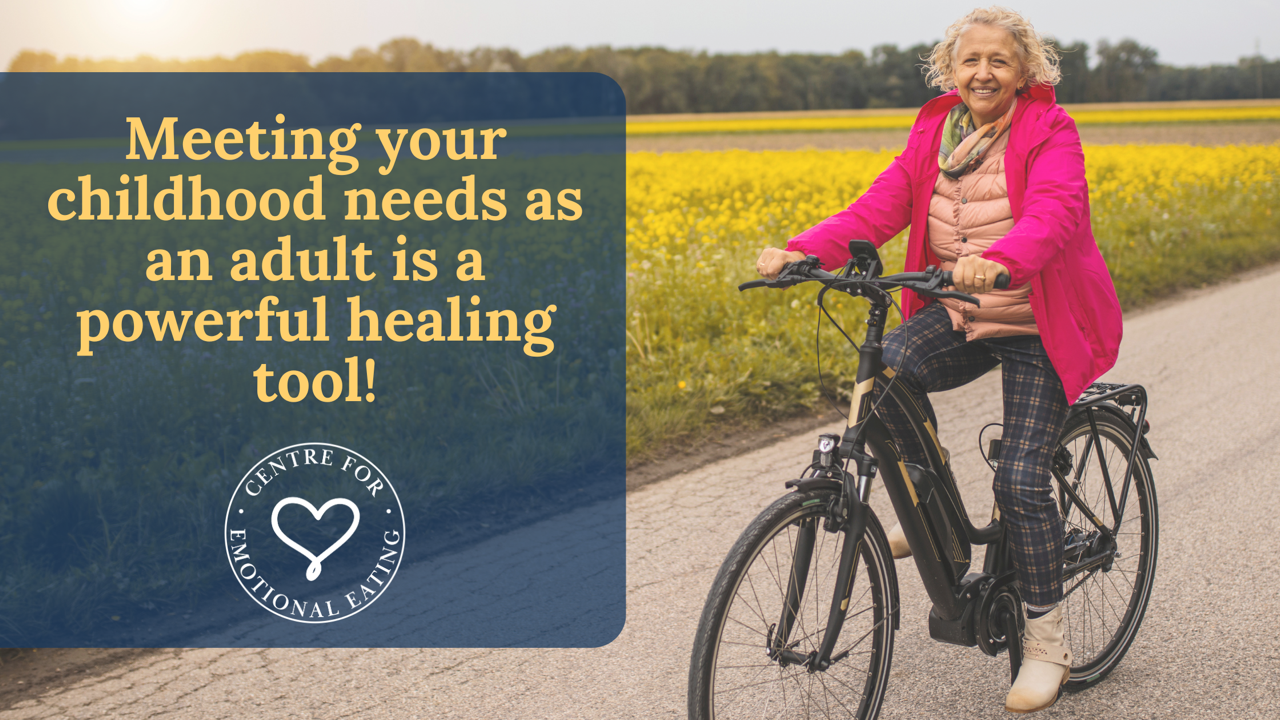
Often here at the Centre for Emotional Eating we talk about how your patterns and habits with food are influenced not by the cravings themselves, but the root cause behind what makes you act.
For many, the root cause can be found in childhood or adolescent experiences. This is because as our brains and bodies grow, we are learning and are influenced by examples displayed around us—to finish what’s on our plate, diet talk, stuffing down emotions, just to name a few. We learn from parents, caregivers, teachers, coaches, siblings, and friendship circles! But not all of these lessons will serve you as you grow into your own adulthood, some might be downright painful or destructive.
It is incredibly common to reach a point in your adult life and know things need to change but not know how. This is where therapy can be a very helpful tool in helping you sort through your thoughts and feelings, gain confidence to make your own decisions, and help you feel more resilient.
And one effective ...
How to Really Give Yourself Unconditional Permission to Eat
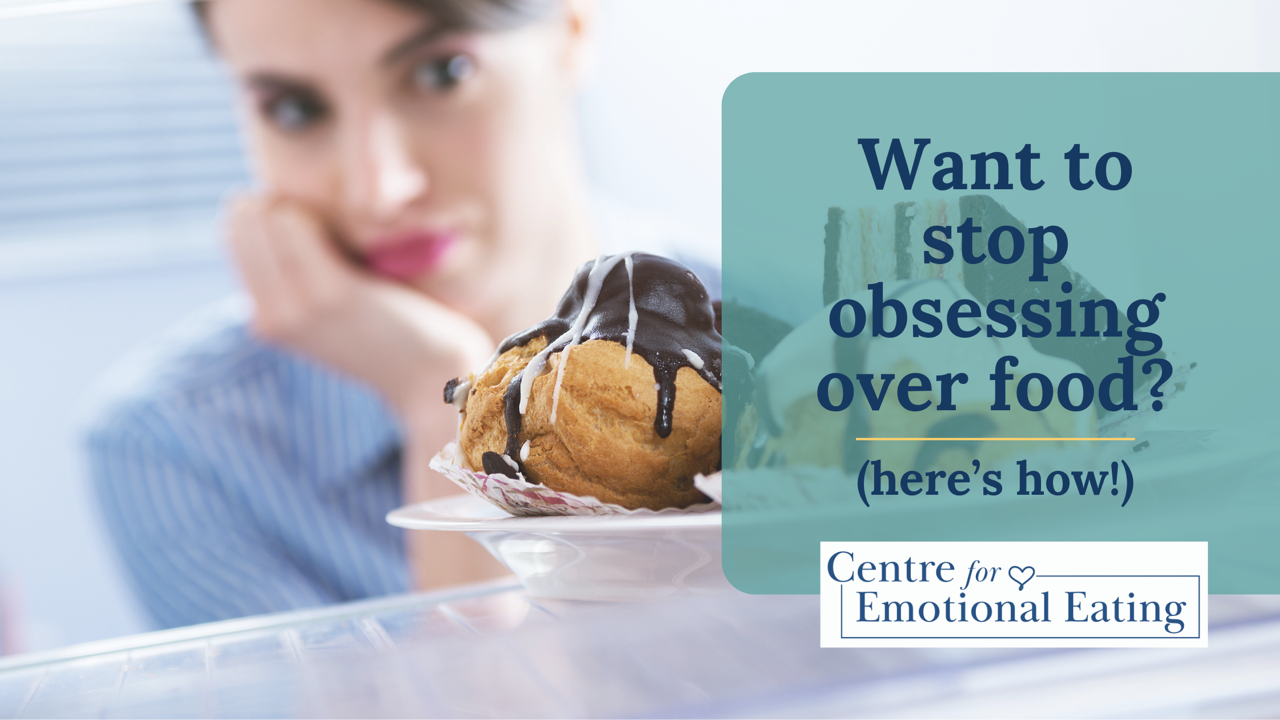
One of the most powerful ways to begin healing your relationship with food is by giving yourself unconditional permission to eat. While diet rules might give you a sense of control, sooner or later you will be feeling out of control, guilty, and shameful when you ‘break’ those rules.
You might have heard of this eating approach before, but what does it really mean? And how can you use it in your day-to-day life? Below we’re breaking down this great step you can take to start loosening your rules around food and start bingeing less.
What Is Unconditional Permission to Eat?
First, it means letting go of the food rules you’ve set for yourself like not eating lunch until noon, labeling fast food as “bad”, or limiting carbs. Then, you give yourself permission to eat what you’re craving, when you want it, and in whatever amount feels right to you. The more you start to lean into this way of eating, the more you’ll notice what foods satisfy you, if you’re hungrier after a workout, and more...
Emotional Eating Toolkit: Creating a Comfort Box
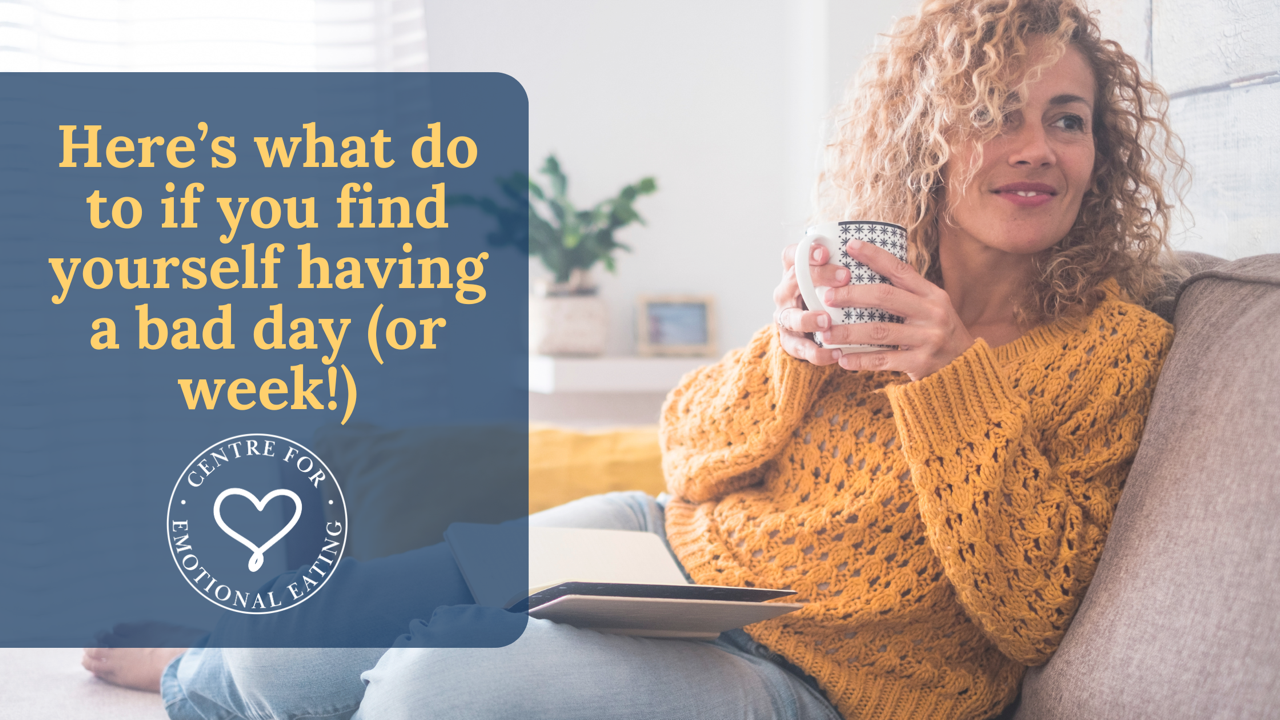
We all have bad days (heck, even weeks!) where we feel drained, angry, or even upset most of the time. If this comes up for you, it is time to create a comfort box. This can be a great resource to build yourself back up when you’re feeling low.
Here’s how to do it:
The next time you’re feeling in a good place, put together a physical box or digital list that has things that bring you comfort when your mood is low. You can include:
- A playlist or movie that lifts you up (or helps you cry). This could be either to pump up your energy or create an emotional release. It can sometimes be difficult to allow ourselves to cry when we’ve been holding it together for so long; we often judge ourselves less when we’re crying over a fictional character.
- A candle you’ve always wanted to burn or a face mask you’re wanted to try. Often, we keep certain things for a “special occasion”, but why wait! Being able to indulge in little luxuries might just give you the small boost you’re looking for (in ...
Welcome Spring with these Insightful Journal Prompts

There is no denying that springtime is a season of renewed positive feelings, like hope and joy. More daylight hours, warmer sunshine, and the ability to crack the windows refreshes us. There is something about shedding puffy winter coats and clunky boots that also allows us to feel lighter—in all the senses of the word!
If you are someone who feels as if they are waking up at this time of year and aren’t sure where to put your rising energy and good mood, below we’ve got some great questions for you to reflect on!
Choose one—or play around with all of them—and get inspired to look inwards. Getting clarity can help you feel more in-tune with what fills your cup and is a great way to not only recognize your needs, but meet them. This practice makes you feel more fulfilled, meaning you’re less likely to reach for food to soothe yourself.
- If your mood is feeling more positive this season, what is it that is creating this mental shift? How can you do or get more of it? What else in yo ...
How to Deal with an Endless To Do List

Checklists can be a helpful tool: they can organize your day and make you feel motivated. But when it feels like you’ve got a never ending to do list, you can feel defeated and constantly drained.
You might even find yourself unable to relax or feel like you haven’t ‘earned’ rest because of all the lingering things you need to get done. With this mentality it is easy to fall into emotional eating patterns to avoid your to do list.
Food becomes the only ‘acceptable’ way to take a break, so you go grab an afternoon pastry to get away from your desk or find yourself in the pantry looking for a snack to focus on something other than your tasks. This pattern of eating also packs a one-two punch of helping you disassociate from your to do list and all the feelings around it: stress, overwhelm, anxiety, fear.
It is unavoidable that life will get busy, but that doesn’t mean you have to live in a constant state of stress eating. Here are four key strategies to bring you some peace of mind, ...
Three Ways to Manage Your Emotions

Emotional eating bubbles up when you don’t want to feel or experience something. Food is always available and seems like an easier route than facing things head on. But the truth is, your feelings just want to be heard and comforted by you. That is the key to breaking out of the emotional eating cycle, not more will power.
This sense of confrontation can feel very scary when you’ve spent years avoiding your feelings, so we’re sharing 3 great ways to get your emotions out in a way that will help you recognize them and move through them—instead of being stuck in the trigger-eat-regret cycle:
Use your voice. One of the best ways to help diffuse the intensity of your emotions is to talk to yourself out loud. This might feel silly at first, but it can be a great way to identify what exactly you are feeling. Find a space alone (the bathroom is a great one!) and start to find your words, for example: “I am feeling really attacked right now”, “I’m so worried I disappointed them and they are ...


